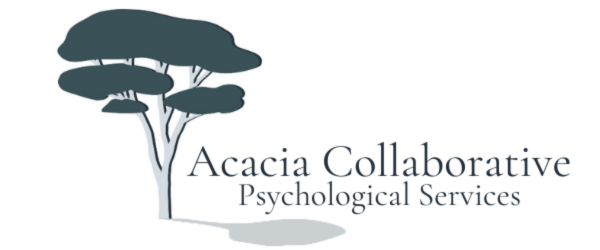Attention Deficit Hyperactivity Disorder (ADHD) is a neurodevelopmental disorder that affects millions of people worldwide. It can significantly impact behavior, making it difficult to focus, stay organized, and control impulses. But don’t worry, you’re not alone! Let’s dive into what ADHD behaviors are , how they can affect your life, and some additional tips.
What Are The Most Recognizable Behaviors for ADHD?
ADHD manifests in various ways, and the specific behaviors can vary from person to person. Some common ADHD behaviors include:
- Hyperactivity: Restlessness, fidgeting, and difficulty sitting still
- Impulsivity: Acting without thinking, interrupting others, and struggling to wait for their turn
- Inattention: Difficulty paying attention, being easily distracted, and forgetfulness
What does ADHD behavior look like?
ADHD behavior can look different in children and adults. Here are some examples:
In children:
- Excessive talking: Children with ADHD may talk excessively or interrupt others frequently.
- Climbing on furniture: They may climb on furniture or engage in other risky behaviors.
- Difficulty following rules: They may struggle to follow rules or instructions.
- Fidgeting and restlessness: They may be constantly fidgeting or moving around.
- Impulsive behavior: They may act impulsively without thinking about the consequences.
In adults:
- Procrastination: Adults with ADHD may struggle to complete tasks on time and often procrastinate.
- Disorganization: They may be disorganized and have difficulty keeping track of their belongings.
- Difficulty managing stress: They may find it challenging to cope with stress and anxiety.
- Impulsive spending: They may engage in impulsive spending or other risky behaviors.
- Trouble focusing: They may have difficulty concentrating on tasks or staying on track.
What are the 9 symptoms of inattentive ADHD?
Let’s take a quiz to see if you might have inattentive ADHD.
Remember, everyone has a little bit of inattention from time to time, but if these symptoms sound familiar and are consistently an issue for you, you might want to chat with a healthcare professional.
Here are 9 symptoms of inattentive ADHD:
- Easily distracted by irrelevant stimuli. (Many people with ADHD call this their “squirrel! moments)
- Difficulty sustaining attention in tasks or activities. (Ever found yourself staring out the window during a meeting?)
- Often doesn’t listen when spoken to directly. (Maybe you’ve been accused of “selective hearing.”)
- Frequently fails to complete tasks started. (Procrastination is a real!)
- Often has trouble organizing tasks and activities. (Your desk is a work of art, right?)
- Avoids tasks that require sustained mental effort. (Math homework, anyone?)
- Often loses things necessary for tasks or activities. (Where did I put my keys again?)
- Is easily distracted by external stimuli. (That notification sound is so mesmerizing!)
- Is forgetful in daily activities. (Have you ever forgotten your own birthday?)
If you relate to many of these symptoms, it might be worth exploring a diagnosis. Remember, ADHD is a treatable condition, and there are many resources available to help you manage it.
At what age is ADHD diagnosed?
ADHD can be diagnosed at any age, making it a flexible condition that doesn’t discriminate based on your birth year. While it’s most commonly diagnosed in childhood, many adults with ADHD are not diagnosed until later in life.
Why is it more common in childhood?
- Behavioral changes: ADHD symptoms often become noticeable during childhood, as children start school and are expected to focus and follow rules.
- Parental concerns: Parents are usually the first to notice signs of ADHD in their children and may seek professional help.
But why do some adults go undiagnosed for so long?
- Misunderstanding: Adults with ADHD might have learned to adapt to their symptoms over time, making them less noticeable.
- Stigma: There might still be a stigma associated with ADHD, leading some adults to be hesitant to seek a diagnosis.
- Lack of awareness: Some adults might not be aware that ADHD can affect adults as well as children.
- High intelligence: Above-average intelligence can often “mask” ADHD symptoms until the individual is given a very challenging task like being in college.
If you’re an adult and think you might have ADHD, don’t hesitate to seek a diagnosis. There are many resources available to help you manage your symptoms and live a fulfilling life.
Living with ADHD
Living with ADHD can be challenging, but it’s important to remember that you’re not alone. There are many resources available to help you manage your symptoms and live a fulfilling life. With the right support, you can thrive with ADHD.
Additional Tips
- Seek professional help: A qualified mental health professional can provide a diagnosis and recommend appropriate treatment.
- Educate yourself: Learn about ADHD and how it affects you. This knowledge can empower you to manage your symptoms effectively.
- Build a support network: Connect with others who have ADHD or understand what you’re going through.
- Practice self-care: Take care of your physical and mental health. This includes getting enough sleep, eating a healthy diet, and exercising regularly.
Remember, ADHD is a treatable condition. With the right support, you can live a happy and fulfilling life.
Mental Health Therapy In North Carolina
Schedule Your Free ConsultationContact Acacia Collaborative
Ask a question or book an appointment below.
Hours
Monday through Friday
9AM-8PM
Saturday: 9AM-3PM
Durham Office:
3710 University Drive #302, Durham, NC 27707
Cary Office:
570 New Waverly Pl #210, Cary, NC 27518
Online Therapy
All of North Carolina
Insurance
Accepting Aetna, Blue Cross Blue Shield, State Health Plan, Out-of-Network Superbills & Private Pay
Services
Mental Health Therapy & Psychological Assessments

